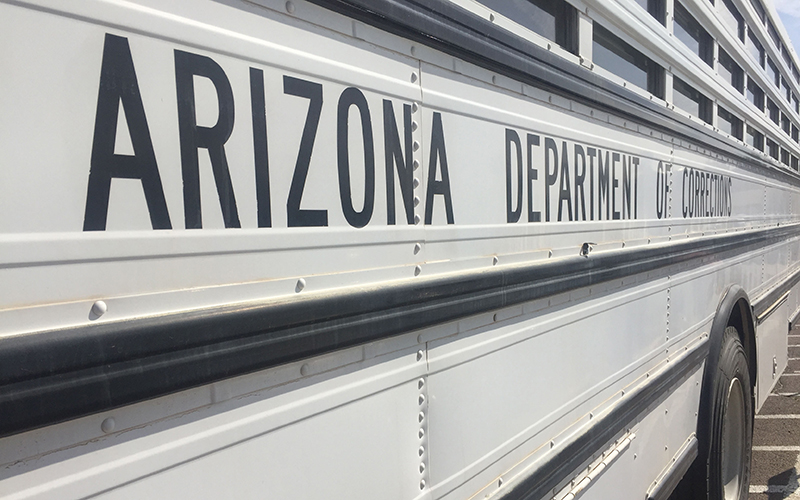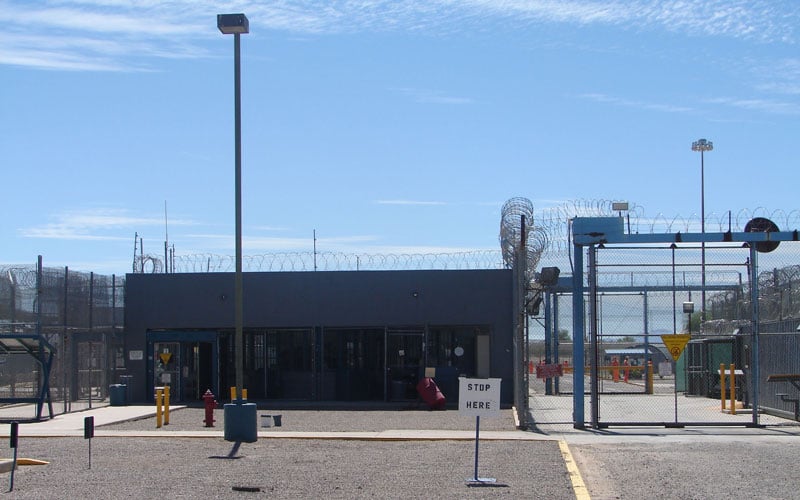PHOENIX – Jude Garcia spent three and half years behind bars for armed robbery and aggravated assault. He left prison with the clothes he wore when he was incarcerated, $100 and no job.
“I applied close to 50 jobs after I was released, but no one would hire me because of my criminal background,” said Garcia, 36.
He said for nine months, he worked for a delivery company called Roadies because it didn’t do a background check. But the company started running background checks at the end of February, and he said he lost his job the last week of March.
Garcia is among many ex-prisoners who struggle finding work after serving their time.
A 2015 survey by the Ella Baker Center for Human Rights found that 76 percent of former inmates said finding work after being released was difficult or nearly impossible. Nearly two-thirds of the more than 1,000 respondents were unemployed or underemployed five years after being released from prison.
During Gov. Doug Ducey’s State of the State address in January, he said one of his key initiatives included adding employment centers in prisons because employing ex-prisoners goes a long way toward reducing the recidivism rate and creating safer communities.
The Arizona Department of Economic Security has partnered with the Arizona Department of Corrections to fulfill his initiative, and officials plan to launch an employment program inside three state prisons that will have employment specialists from ARIZONA@WORK connecting inmates with background-friendly employers.
After completing a successful pilot program in parole offices in Mesa and Tucson, the departments now plan to add employment centers inside the Tucson, Lewis and Perryville prisons. They do not know when they will begin serving inmates.
Department of Corrections spokesman Andrew Wilder said when the program begins, they will serve nearly 200 inmates, both male and female, who pose a medium to high risk to recidivate.
At each center, ARIZONA@WORK specialists will provide the inmates assistance with resume building, interviewing, money management, how to dress professionally and how to explain convictions to an employer.
“Employment is a critical component to an offender’s successful reentry, reducing the likelihood they will recidivate,” said Karen Hellman, director for the Division of Inmate Programs and Reentry at the corrections department.
She added that a job gives an ex-prisoner a positive structure and purpose as well as the financial means to legally support themselves and their family.
The Department of Corrections declined to provide cost estimates for the program, saying it’s too early to say.
However, officials said that by implementing reentry programs such as employment centers, Arizona has the potential of saving money on prison costs.
“Employment centers are a motivating factor to save money on prison costs and the costs carried out by taxpayers because the hope is that ex-prisoners will find a job and lessen their chance to be reincarcerated,” said Patrick Ptak, a spokesman for Ducey.
According to the Pew Charitable Trusts, researchers estimated states could save more than $635 million combined in one year alone in averted prison costs if states reduced their recidivism rates by just 10 percent.
In 2015, the average cost per day to house an Arizona inmate was $65, which means the average annual cost per inmate was $23,826, according to Arizona Indicators.
Some prison reform groups said employment is the right step forward to reduce Arizona’s recidivism rate, but it’s not a complete solution.
Frantz Beasley, co-founder of AZ Common Ground, said employment shouldn’t be the only focus.
“Employment is important and a huge piece in being able to support yourself, but employment does not wrap it up, and there are so many other barriers that need to be addressed like drug and alcohol addictions,” Beasley said.
Donna Hamm, director of Middle Ground Prison Reform, said this is a long time coming by the Department of Corrections.
“Any effort to increase the likelihood a job could be located will be a positive outcome,” Hamm said. “But I find it quite ironic that in 2017, they are suddenly coming to the realization that preparation for reentry should be the focus of the Department of Corrections because it seems rather self evident. Unfortunately, I think they are chasing money.”
The link between employment and reductions in reoffending is a complicated relationship, according to the Council of State Governments Justice Center.
Research from the center indicates that some people released from prison who hold a job in the community are less likely to recidivate, especially when they earn above minimum wage.
However, there is no evidence to support that simply placing an individual in a job will reduce criminal behavior.
Wilder said offenders must be motivated to change their behavior and take advantage of the employment center to change their life for the better.
Garcia is now working at Wendy’s. He gets paid $10 an hour.
“The good news is I have a job now,” Garcia said. “I don’t want to work at Wendy’s forever, but I think not having a job will make it easier for me to return to prison. And I know I do not want to return to prison.”

